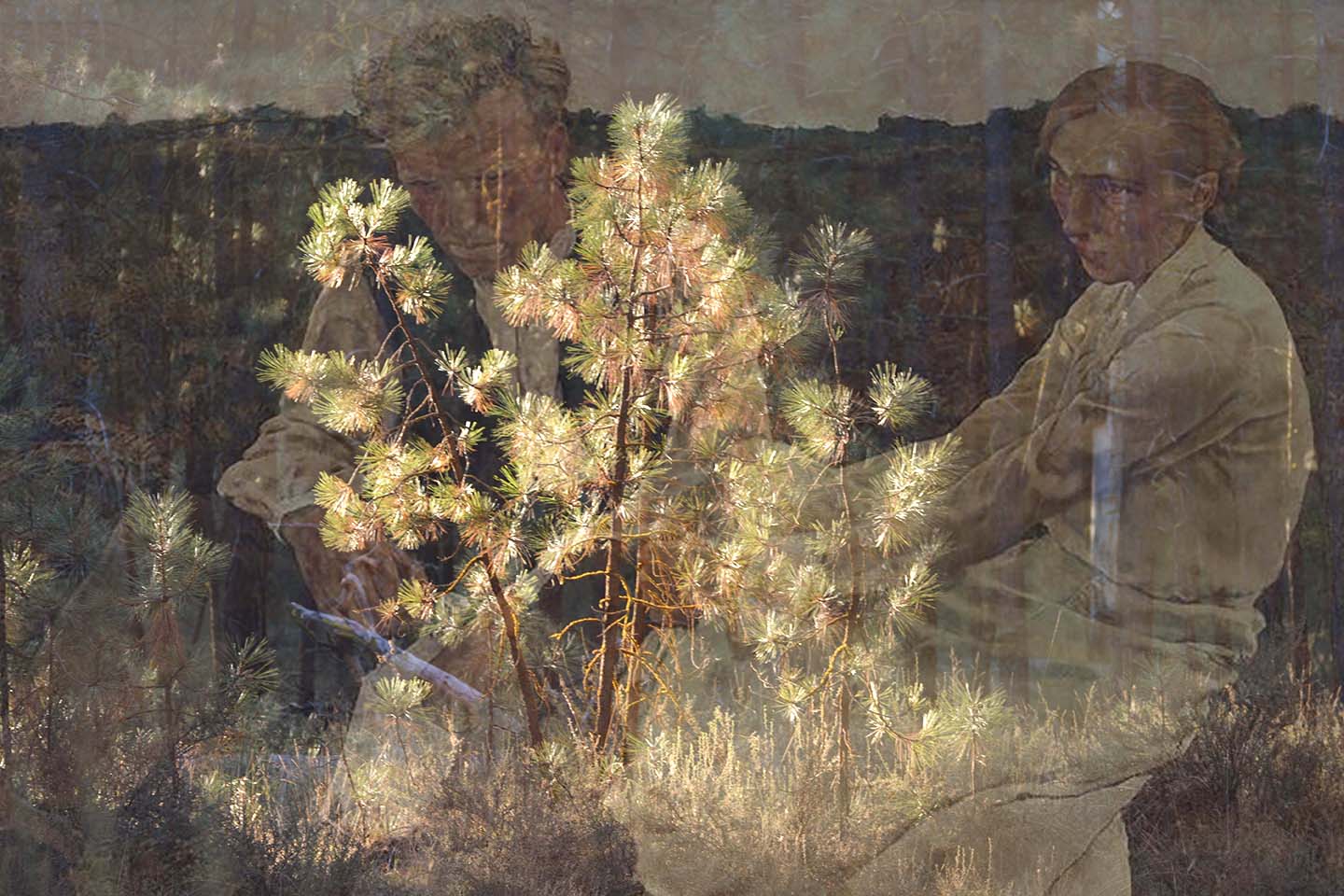Morning Mood
· Beyond the Tree Line ·
When I was little, my bedroom was situated right above the room where my mother played the grand piano some evenings. The minute I heard Morning Mood from the Peer Gynt Suite No. 1, Op. 46 by Edvard Grieg, I waited for the piece I really adored, Anitra’s Dance, trying to stay awake through the intervening The Death of Åse. I had no clue how popular this music had become and knew even less about its origins, a dramatic poem by Henrik Ibsen that he made Grieg set to music. I was just taken by the melodies and chords.
Fast forward to 1965, now in boarding school as a 13-year old, at war with an elitist all girls’ world I despise and yet try to find a place in. My piano teacher, she of the permanent bad breath but sensitive understanding of lost souls, complains about my perfunctory performance of the suite – all I can do to stave off my homesickness is hammering the keys mechanically. She hands me a dogeared paperback with Ibsen’s poem translated into German, so I get an idea of what we’re working on. I devour it, like any other book given to me in those years, and don’t have the faintest idea what it really is about – other than having a strong reaction about why a woman would wait and waste all her life to take a narcissistic fraud and con-artist back into her lap after he ditched her. Got my priorities right, early on!
(I also stupidly abandoned my piano teacher to take up the cello – for the sole reason that it allowed me a weekly escape from school into the city where the conservatory was offering lessons. That did not last long, a story for another day.)
The short version of the Peer Gynt poem, now seen through the eyes of an adult, is this: boy tries to be someone, not sure who, and confabulates, lies, tricks and swindles his way through the world, from Norway to Northern Africa and back, with abduction of other people’s brides, intermittent stops in the halls of mythological troll kings, royal interludes in insane asylums and pursuit by the devil. Two women love him, yet see through him and call him on it, his mother, Åse, who dies, and Solveig, who takes him back when he returns broken, unrecognized, still without identity, her love the key to his redemption.
Essential here is Gynt’s search for identity (or the rejection thereof), a trying on of roles, and a desperate avoidance to be cast in fixed form while the searching is so much more exciting. Why be an ordinary person if you can be an adventurer, a rich merchant, a wise man, a king? With the arrival of modernity, predestined class or social organization no longer determines who you are – replaced by a compulsive search for self -determination. Sooooo many options to choose from, why settle on one? And so Peer steals stories from others, trying on their selves, forever non-authentic, as called out by his mother from the very beginning. He runs away from negative feelings with fantasies of omnipotence or flat-out denial, and does not care who gets hurt in the process. No wonder he feels deadened by the end, but then gets miraculously saved by Solveig’s unconditional love.
Young – and – old Heuer: Spare me the romanticism! Give me poetic justice!
In reality, I was probably enraged that in my teenage existence any deviation from “good girl” stereotypes, any trying out of alternative identities would surely be punished – WAS punished – no redemption in sight. Reserved for the boys, as per usual.
The montage is capturing the original childhood joy at hearing the sounds of Morning Mood waft up to my room, the lightness and serenity of the atmosphere mirrored by the sunlit pine sapling. The image also includes two figures in a wishful representation of Peer and Solveig sharing a life as equals rather than foils for each other.


I selected the super-imposed painting, Couple on the Heath, because the woman looks a little bit like my young mother. She often escaped her grief through music and I want to dedicate the image to her, in gratitude of opening the world of art to me from an early age.

The painter, Lotte Laserstein, spearheading the Neue Sachlichkeit movement, was a prominent artist in Weimar era Berlin, where my mother was born and raised. Of Jewish origins, Laserstein fled Germany for Sweden in 1935, anticipating that a particular identity could be a death sentence under the new regime. In an ironic, if horrid, twist, Ibsen’s Peer Gynt was adapted by the Nazis and made into a nationalistic heroic tale with Gynt’s Nordic identity absurdly fixed into the fascist cult, with the trolls representing Jews.
Maybe next time when you roll your eyes that Classic FM is playing the old war horse again, you can think about all this complicated stuff associated with the music. As much as Grieg was set on showcasing the folk tunes of his country, or the sensuality of desert princesses, or the grief associated with losing a parent, all musical transcriptions of concrete events in the tale, he nonetheless reminds us that there was a larger narrative behind it all. Worth a re-read, in a time where identity politics, the need for belonging and othering, respectively, continue to play such a poisonous role across a divided world.
Here is Grieg’s Morning Mood as an orchestral version by the Berlin Philharmonic and as a PIANO VERSION.
